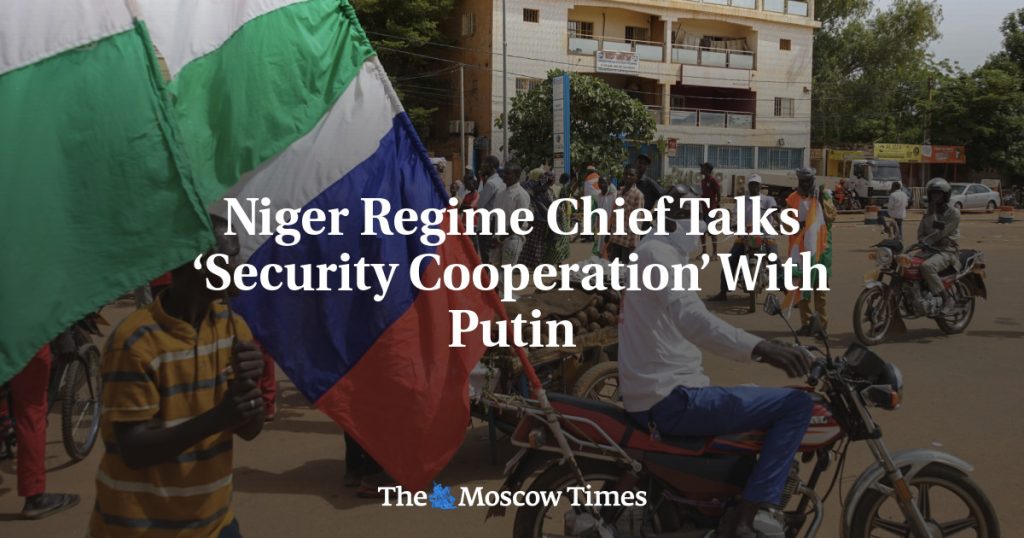General Abdourahamane Tiani, the head of Niger’s military regime, recently spoke to Russian President Vladimir Putin about enhancing security cooperation between the two countries. Since the elected president was ousted last year, Niger has turned to Russia as a defense partner. The two leaders discussed the need for strengthening security cooperation to address current threats and also explored projects for multi-sector and global strategic cooperation. The Kremlin stated that both leaders are prepared to engage in a political dialogue and develop mutually beneficial cooperation in various fields.
General Tiani expressed his gratitude to Putin for Russia’s support of Niger’s struggle for national sovereignty. A Russian delegation had visited Niger in December, demonstrating the growing relationship between the two countries. Despite the presence of around 1,000 U.S. troops in Niger, military movements have been restricted since the coup, and Washington has reduced its assistance to the government. A U.S. delegation visited Niamey in March but did not get the opportunity to meet with General Tiani. The new regime in Niger has rejected military cooperation with Western countries, particularly France, breaking away from colonial ties.
Niger, along with Mali and Burkina Faso, recently announced the creation of a joint force to combat jihadist rebellions in the region. This move follows the countries’ intention to withdraw from the Economic Community of West African States (ECOWAS). Previously, Niger had been a crucial ally of France in efforts to combat Islamist extremism in the Sahel region. However, the new military regime has chosen to distance itself from Western military partnerships and seek support from Russia instead. The conversation between General Tiani and President Putin also touched on the security situation in the Sahara and Sahel regions, highlighting the importance of coordination in ensuring security and combating terrorism.
The dialogue between General Tiani and President Putin underscores the shift in Niger’s international alliances since the ousting of the elected president. By engaging with Russia and exploring avenues for security cooperation, Niger is signaling a departure from its previous reliance on Western powers for defense assistance. The decision to create a joint force with neighboring countries and withdraw from ECOWAS further demonstrates Niger’s determination to assert its national sovereignty and handle security challenges independently. The continued presence of U.S. troops in Niger, despite limited movements and reduced assistance, underscores the complex geopolitical dynamics at play in the region.
As Niger navigates its new role as a partner of Russia and engages in dialogue with other international actors, the country faces a delicate balance of maintaining security and sovereignty while managing its relationships with established Western powers. The decision to strengthen security cooperation with Russia reflects Niger’s strategic vision to diversify its defense partnerships and move away from traditional alliances. The evolving dynamics in the Sahel region, including the rise of jihadist insurgencies, have necessitated a reevaluation of Niger’s security strategy. By engaging in political dialogue with Russia and exploring avenues for cooperation, Niger aims to address existing threats and enhance its security capabilities.


